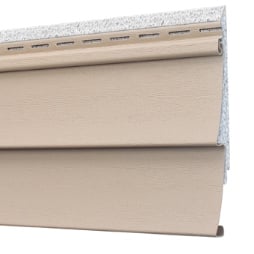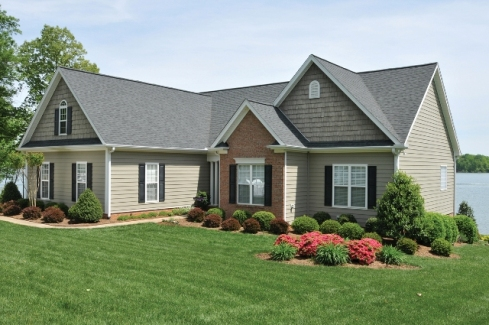Homes are both havens from the bustle of life and shelters from the vagaries of the weather. This makes the ability of vinyl siding to resist heat and transmit sound important. In terms of heat resistance, the more resistant type of siding would be the better choice. The same is true with sound transmission. The more sound it can keep out, the better the haven of peace and quiet it can create.
Thermal Resistance
Various siding brands have slightly different thermal resistance qualities depending on the material used in their manufacture. There are several characteristics a prospective buyer should look into carefully. These are the speed at which flame spreads across the siding, the rate at which it burns up, and the temperature at which the material ignites.
It is a known fact that fire spreads slowly across inorganic material. This is why firewalls are largely made of such products. One reason for this is the slow rate at which these materials burn and the high temperature needed before these can be ignited. For instance, Everlast composite siding will only ignite spontaneously at a temperature of 806 F, or 430 C. It also does not propagate fire when the source of the flame has been put out.
Sound Transmission
Irritating noise is something everyone would like to prevent from entering the home, especially when one is trying to rest. This is particularly difficult for those who live in urban communities with traffic noise, airplane noise, and noise from neighbors who live too close. The exterior cladding of a house, its siding in this case, can help greatly in reducing the noise transmitted indoors.
The IBANA project gathered data on how various building materials like sidings, windows, and doors dampened noise from the outside. The aim was to help insulate buildings against noise produced by aircraft by using materials, or combinations of materials that dampened sound the best.
Vinyl siding was found to generally transmit the least noise compared to other siding materials tested (i.e. aluminum, stucco, cement, and brick). It was most effective in the frequencies below 4,000 Hz. In frequencies above 4,000 Hz, materials that contained stone or in organic material in their makeup (such as the stone-polymeric resin composite of Everlast) were better.
Acoustical performance of a material is also affected by its thickness and weight. Materials that are heavier, and thicker, are better at dampening sound than thinner materials. When compared, Everlast composite is considerably thicker and heavier than its vinyl counterparts.
Aside from this, Everlast is a composite of two different materials. According to architectural testing research, materials like this are better dampeners than those composed of a single substance. Thus, Everlast sidings dampen sound better by an estimated 25 to 50 percent based on the material used, its thickness, and weight.
The Everlast Advantage
Vinyl sidings have excellent thermal resistance and external noise dampening qualities. Everlast composite siding, on the other hand, has comparable qualities and is better when it comes to controlling sound transmission. These two sidings appear the same when evaluated this way. However, there are other qualities that have given Everlast composite siding a complete edge over vinyl sidings. This is in terms of performance and warranty coverage.
Everlast sidings are covered by a double-lifetime warranty (see actual warranty for details). This means that the manufacturer is confident that the siding will retain it's properties over time. Vinyl sidings are, in general, covered by 15 to 25 years of performance warranty. This says that the manufacturer is not confident that the product will perform as expected beyond this date.
Another is the ability of Everlast composite siding to resist extreme weather damage like hail. This is due to the material used to make the product and its thickness. Vinyl sidings are thinner and less resistant to hail and other such extreme weather conditions.
When these two are taken into consideration, Everlast has a clear edge over even the best vinyl sidings in the market. They may have comparable thermal and sound properties, but those who choose Everlast enjoy these properties longer.






